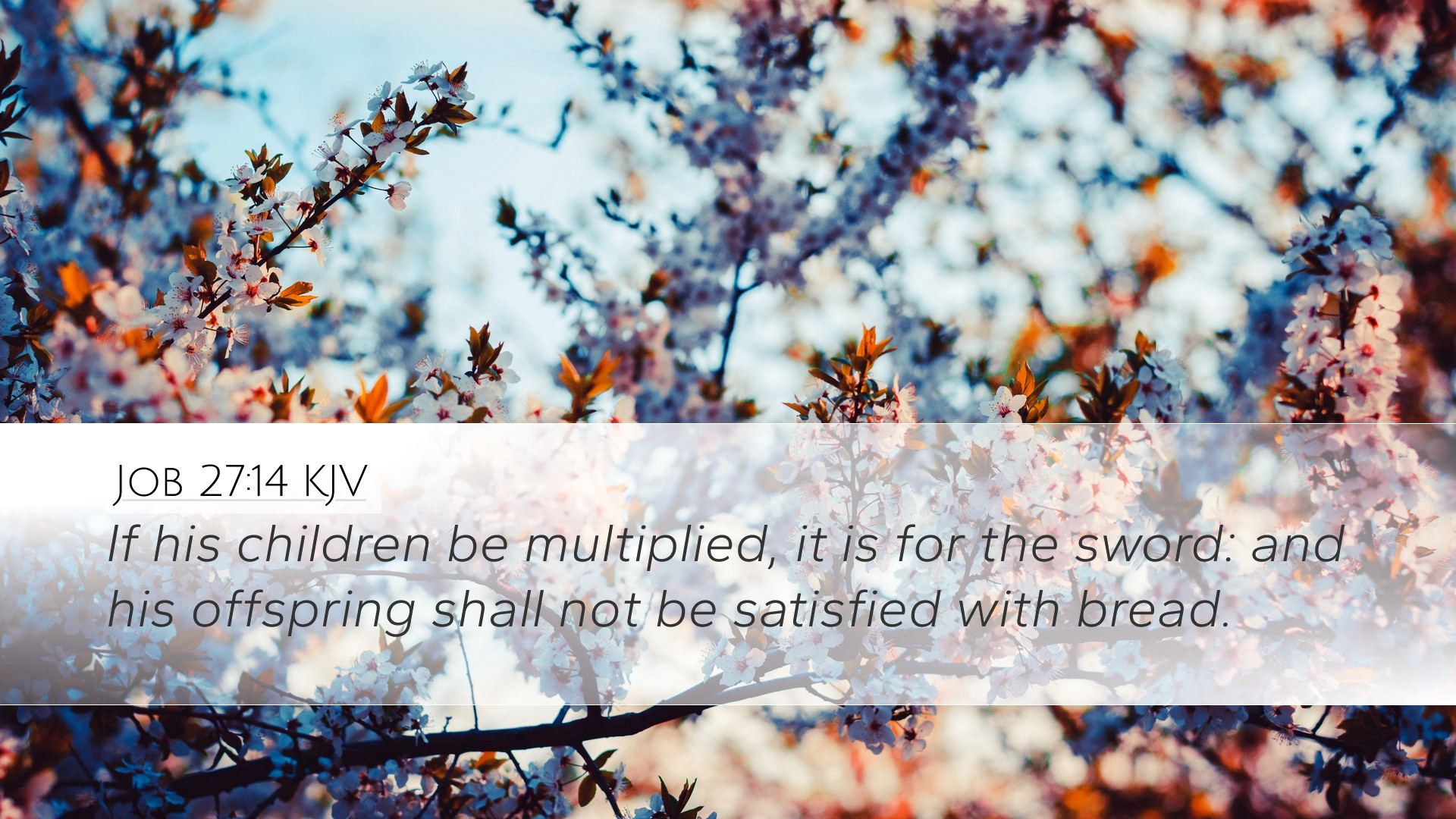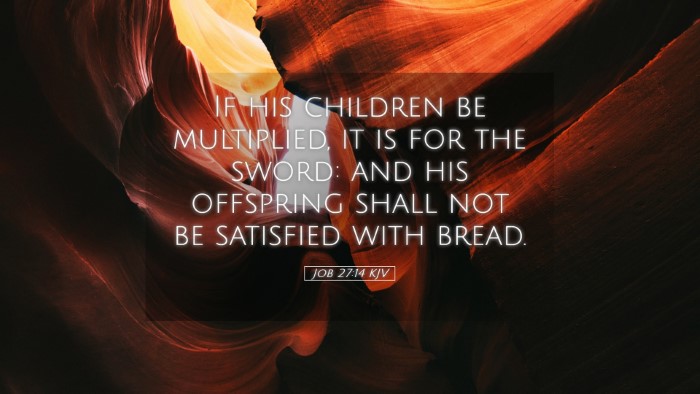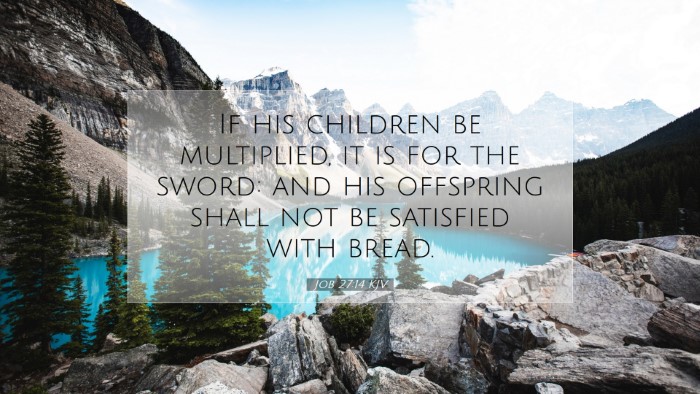Old Testament
Genesis Exodus Leviticus Numbers Deuteronomy Joshua Judges Ruth 1 Samuel 2 Samuel 1 Kings 2 Kings 1 Chronicles 2 Chronicles Ezra Nehemiah Esther Job Psalms Proverbs Ecclesiastes Song of Solomon Isaiah Jeremiah Lamentations Ezekiel Daniel Hosea Joel Amos Obadiah Jonah Micah Nahum Habakkuk Zephaniah Haggai Zechariah MalachiJob 27:14
Job 27:14 KJV
If his children be multiplied, it is for the sword: and his offspring shall not be satisfied with bread.
Job 27:14 Bible Commentary
Commentary on Job 27:14
Job 27:14: "If his children be multiplied, it is for the sword: and his offspring shall not be satisfied with bread."
Introduction
The Book of Job presents one of the most profound explorations of suffering and divine justice found in Scripture. Within this context, Job 27:14 serves as a powerful reflection on the fate of the wicked and the implications of their actions. Utilizing insights from esteemed public domain commentaries, we will delve into the theological and practical dimensions of this verse.
Contextual Analysis
Job, a man known for his piety and righteousness, contemplates the fate of the wicked amidst his suffering. In Job 27, he asserts his integrity and the certainty that despite his current afflictions, he will not abandon his righteous stance. This verse, therefore, captures Job's observations regarding the children of the wicked and the inevitable consequences of their father's actions.
Theological Insights
1. The Fate of the Wicked
Matthew Henry emphasizes that Job is drawing a contrast between the fate of the wicked and the righteous. He points out that while a wicked man's offspring may increase in number, they are destined for destruction rather than prosperity. The "sword" here symbolizes divine judgment, suggesting that the sins of the father may visit consequences upon the children.
2. The Nature of Divine Justice
Albert Barnes provides a critical examination of the justice of God in response to human actions. Barnes highlights that, according to the biblical worldview, the wicked often experience temporal prosperity, but their ultimate end is destruction. This verse underlines the principle of divine retribution, where the unrighteous see their iniquities reflected in their offspring's demise.
3. The Illusion of Material Gain
Adam Clarke comments on the notion that wealth and abundance are often indices of favor; however, he reminds readers that, in ultimate analysis, material possessions do not equate to spiritual success or divine approval. The phrase "his offspring shall not be satisfied with bread" indicates a posthumous deprivation—despite their apparent abundance, they face a famine of spiritual and eternal significance.
Practical Applications
1. Implications for Family and Legacy
In the context of pastoral care and counseling, this verse serves as a sobering reminder for parents about the weight of their actions. The legacy one leaves, whether good or bad, can have profound effects on future generations. Therefore, the importance of living a life of integrity and faith becomes paramount.
2. Understanding Suffering and Sin
This commentary brings to light the necessity of understanding human suffering within the framework of sin and its consequences. The reality that sometimes suffering can be inherited or experienced indirectly through the actions of others challenges the notion of individual blame, and instead invites deeper reflections on communal sin.
3. The Assurance of God's Justice
For believers and theologians alike, this verse reinforces the assurance of God’s inherent justice—the belief that no wicked deed goes unpunished, even if it appears the wicked prosper in the short term. This calls for patience in the face of injustice, trusting that God watches over the righteous and will ultimately vindicate them.
Conclusion
Job 27:14 encapsulates important truths about the nature of wickedness and divine retribution. Through the insights of Matthew Henry, Albert Barnes, and Adam Clarke, we come to understand that while the children of the wicked may appear to thrive, they are ultimately destined for devastation. This serves as a poignant reminder for believers today to live righteously and to instill these values in their families, ensuring a legacy that honors God.
Further Reflection
As one contemplates the depth of this verse, it may be worthwhile to meditate on the following questions:
- What does this verse reveal about the relationship between sin, family, and community?
- How can the principles of justice discussed here be applied in a contemporary context?
- In what ways can we actively work to create a legacy that aligns with God’s righteousness?


